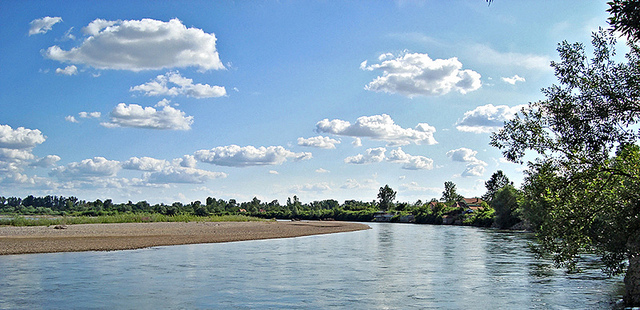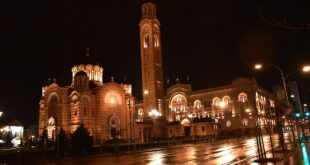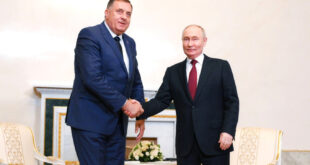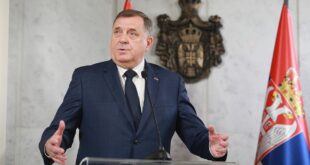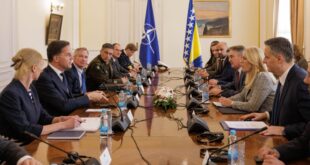October 15 marked the end of the census in Bosnia and Herzegovina, the first since 1991 (we talked about it here). East Journal has collected a valuable testimony of someone who, in the recent weeks, has witnessed firsthand the work of the census. As the story contains sensitive information, the anonymity of its author will be maintained. The report remarks the reactions of the respondents, including indifference and resignation, and the strategies of the census takers to circumvent the difficulties of research. It also underlines some less-known aspects of the Bosnian census, which records not only national and religious identity, but also sensitive information such as ownership and domicile, arousing suspicion and hostility, especially among war veterans. Here below the testimony.
In the villages around Bijeljina where mostly Serbs live, in the North-East corner of Bosnia, unemployed youth is eager to do the census and earn some pocket-money. After all, making a living is what is on most people’s minds. That is not to say that they are particularly enthusiastic about it. In fact, many of the houses in the village see the census as a disturbance of their daily routine. Chopping the wood, cooking, and keeping the house warm is the priority. Those who have more time to talk about politics readily show their discontent with a project whose consequences are not clear.
Identity issues
First there are those are afraid for their identity. A neighbour, in his sixties, wonders what the census will mean for Republika Srpska, for all those who paid a heavy price for this entity to exist. Nor is the opinion of the EU, whose symbol is clearly visible on the pouch of census takers, much better. “Comrade Tito told us that it is in our interests not to join any block, so I am against the EU or any other block”, he comments. Census takers are all too aware of the public opinion in their locality. In the village of M., bordering T., which saw heavy fighting during the war, a census taker stated that she is afraid of having to ask people questions about their identity. “There is still a lot of fear and confusion, so people might lie“, yet she knows that it is her duty to scribble down what she is being told, not what she thinks the truth is. Still, she decided to fill in the nationality question without even asking. Another census taker decided to deal with sensitive questions the easy way. Instead of asking an open-ended question about their identity, she decided to do yes/no questions, such as “do you speak Serbian?”. That way, there would be no confusion. Personally, I was not even asked questions about nationality and language, even though I wanted to declare my family as “aliens”to see if it would show up in the final outcome.
Sensitive information: properties and domicile
Second, people worried about revealing sensitive information. Taxes have to be paid on different kinds of property that you own, and one thing that unites rich and the poor is that they don’t want to pay more taxes. The issue over land ownership, for example, is very prominent. A men sold a piece of land to his neighbour, however, even though the neighbour works the land, the ownership hasn’t been legally transferred, so he still has to pay the tax. This dispute prevents them from talking to each other. Seized property will also be hard to explain for those who stole and pillaged, as it was not so uncommon to have gunmen remove you from your property during the war. Another kind of information that people don’t want to share is their whereabouts. This is particularly sensitive information for war veterans. They live in fear that they will be tracked down and arrested, especially if Bosnia joins the EU. Even seemingly decent war veterans believe that they could be tracked down for one reason or another. A census taker did tell each household “look, we were told this is for statistical purposes only, but of course I cannot guarantee that they don’t do something else with the data”.
Peculiarities: absent-minded, emigrés and disenchanted
Third, the census taking process couldn’t deal with certain peculiarities. In a neighbourhood, there is a woman who is originally from Croatia, but she is extremely ill and cannot remember anything, even where is she. The girl who did the census on that block reported “I guess I just had to fill it in based on what I knew and what others told me.” Another family, which has a sizeable property in my neighbourhood – a beautiful house – lives in Germany but comes home every longer weekend or holiday. They refused to be taken into census. Their answer, according to the girl which tried to interview them, was “look, we live in Germany and we want to have nothing to do with this census.” They aren’t the only ones. The owner of a supermarket in Bijeljina said “I don’t care about this census or what it means for Republika Srpska or for Bosnia. If you ask me, it would’ve all been better if this was all Croatia“. Too bad I didn’t ask him if he was willing to declare himself as an “alien”!
Perhaps we will get a rough picture of what modern Bosnia looks like, but the extent of how little Bosnians trust the people in power reveals that there could be a lot of information that we are missing here.
 East Journal Quotidiano di politica internazionale
East Journal Quotidiano di politica internazionale
